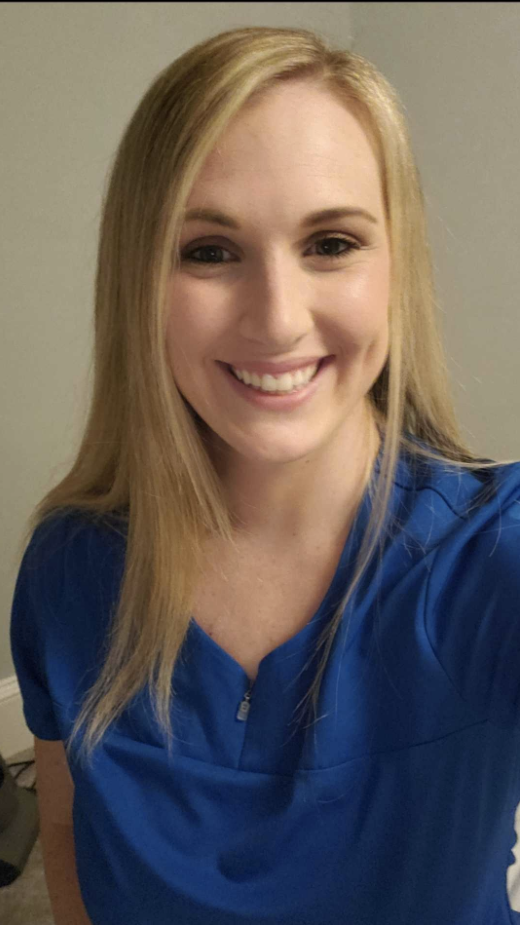I’ll be transparent; it’s been almost seven years, and I can still say that nursing clinicals were some of the most stressful times in my life. The anxiety, the lack of sleep, and trying to prove oneself to the world, all while still in self-doubt, is a lot for a student nurse to handle! Looking back, however, it did NOT need to feel so overwhelming! I’m going to break down my top tips and tricks to help you get the most out of your nursing clinicals this semester.
-
Be Prepared
Start off the day stress-free and have all your necessities run-out-the-door READY before you even wake up for clinical. Your badge, stethoscope, notepad, and pens should already be in your bag. Lay out that Stephanie Top and those Justine Joggers the night before. And if possible, set your coffee maker to brew ten minutes before your alarm clock is set. Have your lunch bag ready in your fridge, right beside your water bottle, and don’t forget to bring some protein-packed snacks to help get you through that long shift! (Chocolate-covered almonds and protein bars are great options.) The necessity for getting all your essentials organized the night before clinical is two-fold. Not only will the likelihood of forgetting something be reduced, but the feeling of preparedness will give you that confidence boost to kick off your day on the right foot. If you need more ideas on what to bring to nursing clinicals, ‘11 Nursing School Essentials’ is a quick, must-read Moxie blog that will ensure you feel your most prepared. With all your essentials ready to go, you’ll start feeling great!
-
Cheat Sheets
For once, cheating is welcome! When it comes to nursing clinicals, and healthcare at large, it is better to find the correct information than to guess. That being said, time management is a hurdle that every new nurse needs to work through. Therefore, I find it imperative to have a miniature notebook or writing pad in your pocket with useful, easy-to-access information. Organize these notes with normal lab values, frequently used medications, common diagnoses and a list of helpful phone/pager/locker numbers relevant to your unit.
An important caveat: Do not waste time writing down things you already know! Your cheat sheets should be quick details that jog your memory so you can find important information quickly. This notebook is also important for writing down new information you learn while on the go. There will be so much you learn in the field, at an extremely fast pace. Capturing this information is critical. You will learn your biggest lessons on hand and on the run. So, when appropriate, jot down the information in between tasks. Then, don’t forget to take time in the next couple days to review your notes and your experience. You will not regret it!
-
Walk and Talk Like a Nurse
Spoiler alert: you won’t become a seasoned nurse overnight, but that is why you’re here and right where you should be! Practice makes perfect (if there ever was such a thing) and patience with yourself is key. The first step is taking good report notes. Many nurses talk fast in report and use acronyms you may not understand. Don’t be shy to ask them to slow down a little and explain the things you don’t yet understand. To help, it is usually worth having a report sheet outline already made up that you can write on like a worksheet. This will save you time and help with organizing what you need to know. After report, take some time to ask yourself the following questions: What brought the patient here? Does their past medical history seem relevant to their current care? What tests and interventions have been done, and which need to be done? Are they presenting with any new or worsening symptoms, labs or vital signs? If so, can I think about why that might be happening? Does the responding clinician know yet? What is their response? When I go into the room, what assessments should I focus on and what tasks need to be done? You may want to write down these questions in your notebook until this thought process becomes second nature! Then, write down a list of tasks to complete on your report sheet; I personally write check boxes next to my to-do list items to help keep track of what I have and have not done. It’s also important to consider what discharge teaching the patient might need.
Reminder: Discharge teaching starts the first day they are admitted. Always take some time to connect the dots to try and understand the patient’s bigger picture of diagnosis and treatment. It may seem like a lot at first, but it will quickly become a habit. Taking the time to practice now will be well worth it!
-
Know How to Ask Questions
We get it. You want to make the most out of clinical and learn everything you can in the process, but you are worried about not exuding confidence while asking frequent, but necessary, questions! Yes, you CAN have your cake and eat it too. First, know who to ask. Follow your intuition on who most wants to help you succeed. Then, when you do ask a question, it is often helpful to insert an educated guess. You want to relay to others that you are thinking through a problem. Which of the following sentences sounds better? “Why are we reviewing this patient’s creatinine?” or “I know many medications can affect the kidneys; are we reviewing the creatinine due to a specific medication this patient is on?” From the perspective of your instructor, you might agree that the second quote sounds like you have thought through your question and are more engaged with figuring out the right answer.
The best part about this tip: If you are wrong, you still sounded intelligent having made an educated guess! That’s a win in and of itself and assures your instructor that you are serious about becoming a safe and educated nurse!
-
Be a Team Player
It isn’t all about the work; be personal! Not only with your peers and clinical instructor, but with the other nurses on the unit as well. Though not every NLN (newly licensed nurse) gets the opportunity, you never know if the unit is looking to hire more staff nurses around the time you graduate, so put yourself out there. Get excited when a nurse is asking for help; this is your opportunity to shine! Show you are supportive, enthusiastic, and genuinely care. Just be sure to know your limits and be authentic if you need clarification on how to do something. It is always worthwhile to be humble and honest. You WILL be noticed on the unit for your generosity.
You may not know everything, (and you never will!) but if you are enthusiastic and engaged in nursing clinicals, you will start to build the skills necessary to be an effective part of the healthcare team. Now go out there and make a difference! We are rooting for you.
- #MoxieNurse Ashley
ABOUT THE AUTHOR
Ashley Jerome BSN, RN, PCCN is a Massachusetts native who works part-time at a Cardiac Surgery unit in a Boston hospital. She graduated from MGH Institute of Health Professions in 2016 with a Bachelor’s Degree in Nursing. Ashley then obtained her PCCN Certification September of 2019. Ashley is also the proud co-designer of the Moxie Scrubs Ashley Top and has two young boys and a loving husband in the South Shore area.






